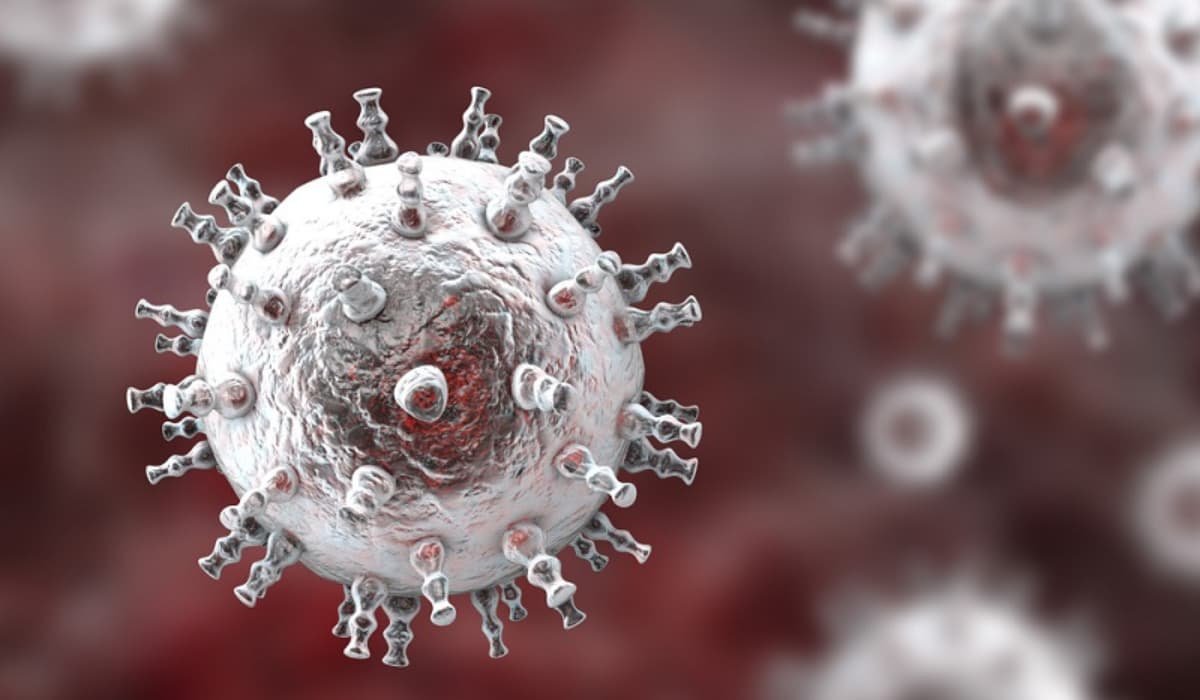Genital herpes is the most common type of sexually transmitted disease that is caused by the herpes simplex virus which is a virus that commonly transmits to a person through skin-to-skin contact during any sexual activity. It is a non-curable sexually transmitted infection that can only be managed through medicines and by lowering the risk of transmitting the infection to others.
People usually have genital herpes and also suffer from minor signs and symptoms that barely go noticed. There are also cases of genital herpes where no signs or symptoms show up. Even though there is no sign or symptom, it can transmit to another person easily.
What Are The Symptoms Of Genital Herpes?

The symptoms of genital herpes can vary from mild symptoms like fever to severe ones like the appearance of blisters. Some of the first symptoms that a person experiences, if they have genital herpes, are the following:
- Fever
- Headache
- Fatigue
- Muscle pains
- Swollen lymph nodes
People with genital herpes might also experience an itch around their genitals or anus for 24 hours. The most common symptom of genital herpes is the appearance of blisters and this is considered the first outbreak of the infection. In people with a penis, the blisters will be present on or near the penis, scrotum, and buttocks. In people with vaginas, the blisters will be present on or near the vagina, anus, and buttocks.
Some of the general symptoms of genital herpes after the first outbreak of the infection are listed below:
- Blisters can appear on your face, mouth, or any place that comes into contact with the infected area.
- You will start to experience an itch or tingle before the blisters appear on a body part of yours.
- The blisters may come as open sores and discharge fluid.
- Within weeks of the first outbreak, a crust may appear over the blister.
The time to show symptoms might be different for everyone. It can take as little as 2 days to 12 days. In most cases, the first outbreak happens after 4 days of contact with the infected person.
Causes Of Genital Herpes
The primary causes of genital herpes are two viruses and they are;
- HSV-1: HSV-1 is a version of the hypersimplex virus that causes cold sores or fever blisters. HSV-1 can be passed from someone who has the virus in their mouth tissues to another person through oral sex which can cause genital herpes. HSV-1 outbreak is less than HSV-2.
- HSV-2: The common cause of genital herpes is HSV-2. The virus can be present in the fluids of ulcers, the moist lining or fluids of the vagina or rectum, and in the moist lining of fluids of the penis. This virus transfers from one person to another during sex.

How Is Genital Herpes Transmitted?
Genital herpes is a sexually transmitted infection and it can be passed from one person to another during the following sexual activities:
- Vaginal sex
- Anal sex
- Oral sex
- Any other sexual activity that involves contact between the genitals.
When To See A Doctor?
You need to see a doctor right after any signs or symptoms of genital herpes start appearing. You can also see the doctor if you are suspicious that the person you had been involved in sexual activity with might be infected by HSV-1 or HSV-2 virus, even if it is oral sex. Because HSV can transfer through oral sex as if the person has oral herpes and they come in contact with your genitals.
How Is Genital Herpes Diagnosed?
When you visit a doctor for genital herpes, they will test whether you are infected by the virus or not using polymerase chain reaction tests. This is a type of test that amplifies small parts of the virus DNA for detection. Genital herpes can also be diagnosed through serologic tests which is a blood analysis that detects the antibodies that fight the virus. Even though the majority of genital herpes does not cause any serious comfort, diagnosing and treating the condition will greatly help in further outbreaks and infecting other people.
How Genital Herpes Can Be Treated?
As we mentioned in the introductory part, genital herpes is not a disease that is curable. There are no medications that will permanently cure the condition but rather there are medications that will aid in managing it and help with diminishing the severity of the symptoms. Genital herpes does not have any long-term complications in the majority of cases.
If you experience any symptoms that are very discomforting or troublesome, your health expert will prescribe antiviral medications. These medications will also aid in preventing further occurrence of the infection. There are many tropical creams that can aid in reducing pain caused by any outbreaks. Apart from this, daily suppressive therapies can help in preventing the transmission of the virus. As of now, there is no vaccination that prevents the transmission of herpes.
Risk Factors Of Genital Herpes
A few of the risk factors of genital herpes are discussed below:
- Sexual contact with genitals through, anal, or vaginal sex.
- Having multiple partners.
- Having a partner who is diagnosed with genital herpes but is not taking medications for it.
- Certain groups of the population such as women, people with a history of STDs, black people in the United States, and so on.
How To Prevent Genital Herpes?
Here are some ways through which you can prevent genital herpes:
- To prevent genital herpes, you can use barrier methods like condoms while engaging in sexual activity.
- Do not engage in sexual activity with a person who is showing genital herpes signs and symptoms.
- Talking with your sexual partners about their STD status.
How Common Is Genital Herpes?
Genital herpes is one of the most common sexually transmitted infections that affects over 67% of the population. According to recent reports, one out of six people in the USA is reported to be affected by genital herpes. Genital herpes is more common in men.
Genital Herpes And Pregnancy
If you are pregnant and infected with genital herpes, then you will have to inform your doctor about it immediately. The doctor will suggest a treatment that is healthy and suitable for your body. In most cases, the doctor will recommend antiviral drugs like antidepressive therapy or occasional therapy to prevent outbreaks.

